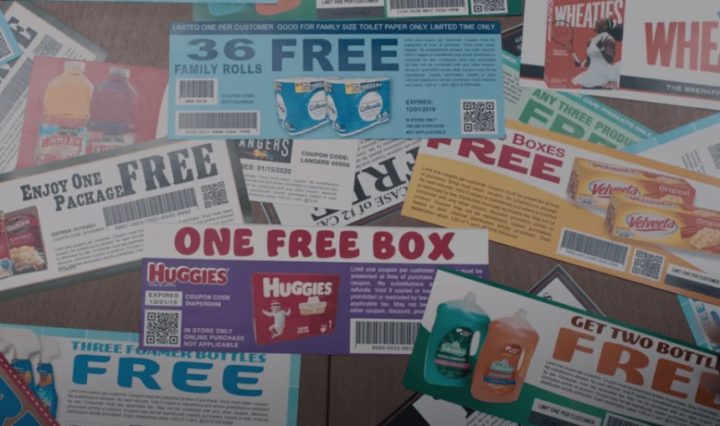
Is the coupon industry ready for its moment in the spotlight?
The much-anticipated movie Queenpins opens this week, and Coupons in the News has plenty of coverage planned – find out whatever happened to the real-life coupon counterfeiters who inspired the film, how the actors prepared to play extreme couponers, and watch for a review to drop on Wednesday morning. That’s in addition to a Q&A with the filmmakers and a breakdown of the movie’s trailer, which are available to read right now.
All of this is in recognition of the fact that this is the most high-profile publicity that couponing has gotten in years. Not since the TV series Extreme Couponing debuted more than a decade ago has coupon use gotten such mainstream attention. But not all of that attention was gratefully received back then. Reality TV convinced many viewers that brands and retailers were your opponents, rules were made to be broken, greed was good, and couponers were kind of nuts.
Now, coupon industry professionals are hoping that Queenpins will provide some more positive attention. Nevertheless, they’re preemptively warning would-be copycats not to get any ideas.
Queenpins, which opens in theaters Friday, tells the comedic tale of two best friends who turn coupon fraud into a big business. It’s inspired by the true story of three Phoenix women involved in a $40 million counterfeit coupon scheme. The real-life women eventually got caught, as do their big-screen counterparts, but only after getting away with it for a long time. The stacks of cash, the sports cars and the many other high-priced toys they amassed sure look tempting – so the coupon industry wants to make sure no one is inspired to give coupon fraud a try for real.
“The release of Queenpins confirms coupons’ place in today’s pop culture. Unfortunately, a hobby this popular that involves financial gain is going to attract a criminal element,” Association of Coupon Professionals Executive Director John Morgan said in a statement. “While Queenpins is being marketed as a comedy, it’s also very much a cautionary tale. Pay attention. We are.”
The ACP, which represents manufacturers, retailers and other coupon industry stakeholders, says it will be “on high alert” upon the movie’s release, for any signs that wayward moviegoers come away convinced that coupon fraud looks like fun.
Few moviegoers are likely to think that they, too, can build a $40 million counterfeit coupon empire, especially after seeing how it can all come crashing down. But other scenes in the movie depict people buying coupons, trying to convince a cashier to accept an invalid coupon, and writing fake complaints to companies just to get them to send free coupons. So the ACP says it will be “closely monitoring program redemptions and increased calls to consumer affairs lines to ensure the movie doesn’t inadvertently inspire copycat criminal activity.”
Providing a reality check in response to a fictional movie is something of a delicate balancing act. The movie is a comedy, after all, that’s meant to provide a couple hours of entertainment, not provide you with tips on bad couponing behavior to emulate. So some might be inclined to dismiss those expressing concerns as scolds who can’t take a joke. On the other hand, the industry is merely being proactive in responding to Queenpins in advance. Compare that to 2010, when nobody knew what hit them after Extreme Couponing came along. By the time real-life coupon users and professionals complained that the series was giving people the wrong idea about how legitimate couponing actually worked, show producers who already had a hit on their hands simply shrugged it off. “This is a docu-series of behaviors; it’s not a how-to program,” a spokesman sniffed in response to the concerns.
The makers of Queenpins, in contrast, said they were mindful about the seriousness of coupon fraud as they embarked on their project. “These coupons, if you put them in the wrong hands, can affect the economy. Just one bad coupon costs a company millions and millions of dollars,” co-writer and co-director Gita Pullapilly told Coupons in the News. “The biggest victims were these corporations who lost money from these counterfeit coupons,” her husband, co-writer and co-director Aron Gaudet said.
Yet, despite the seriousness of the 2012 coupon fraud case that inspired the movie, Pullapilly and Gaudet couldn’t help but to find the humor in the situation – and figured their audience would, too. “The postal inspectors got involved. There was a SWAT team busting in on them. All of those things, and the sports cars, and the guns, and the giant RV, and the cash,” Gaudet said. “It all sounded absurd enough that we were like, oh, this should be a comedy,” Pullapilly added.
The saving grace, perhaps, is that the characters in the movie end up stealing coupons, not technically counterfeiting them. In real life, “it would be very hard to pull off what they pulled off,” Pullapilly said.
And that’s good, because in real life, coupon counterfeiting can have some pretty serious consequences. “The likelihood of being caught and prosecuted is extremely high,” the ACP’s Morgan said. Just last month, a Virginia man was sentenced to more than seven years in prison and ordered to pay $31 million in restitution in connection with a counterfeit coupon scheme. And his wife could face an even more severe penalty when she’s sentenced next week.
“Counterfeit coupon fraud costs the industry and consumers tens of millions of dollars per year,” the ACP points out. “A general rule of thumb is that if an offer seems to be too good to be true, it probably is,” Morgan added. “If someone is buying coupons online, they are counterfeit or stolen property and violate the terms of use on the coupon.”
Much like murder mysteries don’t inspire moviegoers to kill, though, and heist movies don’t give most people ideas on how to rob banks, Queenpins‘ makers hope people will be able to watch the movie, enjoy the ride and have a good time. “The humor comes from the situation, but also from the choices that the characters make for themselves,” Pullapilly said. “This is a story about coupons and the scam and this investigation, but below it, it’s really about finding your worth in life and finding your path to happiness and joy.”
So just because you see bad behavior on the big screen, don’t try it at home. Fans of coupons may appreciate the attention the movie will bring to those little scraps of paper that save people a billion dollars a year. Manufacturers, retailers and other coupon industry participants just want to make sure it’s not the wrong kind of attention. And come Friday, they’ll be watching closely – just in case.
Image source: STXfilms










